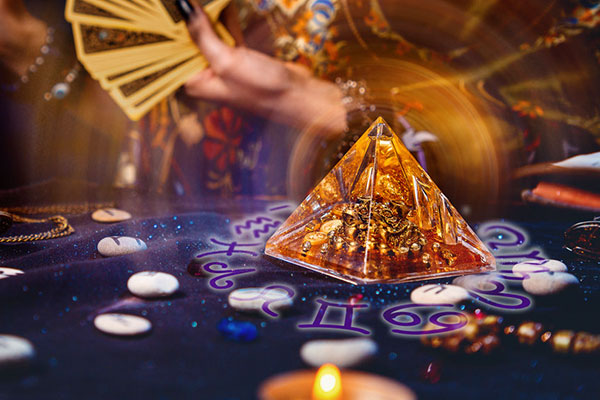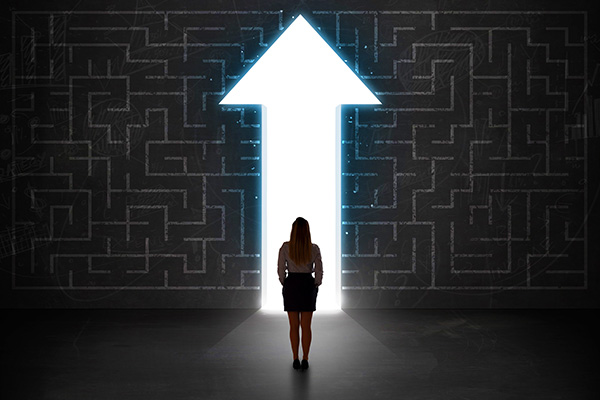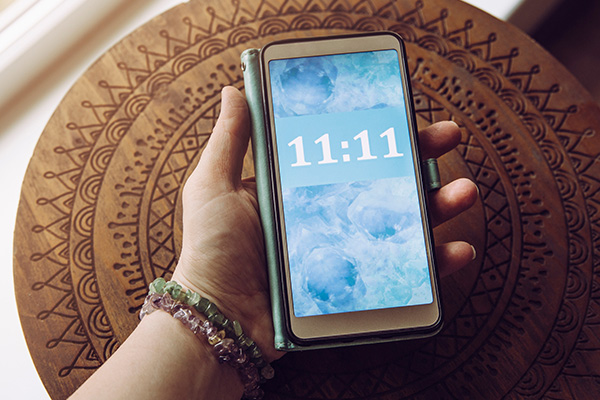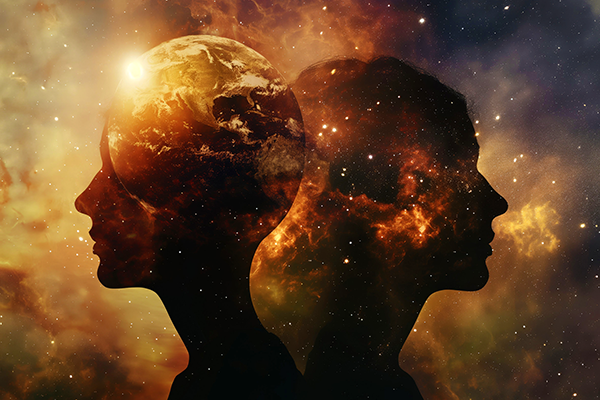spiritual path
Why This Rune Reader ‘Reverse Plans’ Her Day
 If you’d asked me a few years ago how I welcomed a new day, I would’ve rattled off a checklist: what needs to be done, what must be scheduled, what’s urgent and what’s not. I thought a structure schedule and curated life was strength. I believed that manifesting my future meant controlling it before it even arrived.
If you’d asked me a few years ago how I welcomed a new day, I would’ve rattled off a checklist: what needs to be done, what must be scheduled, what’s urgent and what’s not. I thought a structure schedule and curated life was strength. I believed that manifesting my future meant controlling it before it even arrived.
But somewhere along my spiritual path, I began to dance to a different rhythm. It was a kind of sacred tempo that doesn’t rush or demand. That doesn’t forecast before it senses and feels.
Today, I want to share that magical alternative rhythm with you. I call it reverse planning. It’s not a rigid system, but an invitation to trust time the way a rune whispers its truth.
Our modern culture tends to treat calendars like hammers. We use them to nail down the future with agendas, meetings, goals, and deadlines. On paper, life appears orderly, efficient, and decided. But for many of us, that creates a low-level anxiety that’s hard to name.
We wake up already carrying the weight of what hasn’t even happened yet. The day feels predetermined before we’ve had a chance to participate in it.
As someone who reads runes, symbols that speak across the ancient thresholds of time, I’ve come to believe that true guidance rarely comes in the form of a command. Instead, it arrives quietly, in the pauses, in the spaces between breaths. That’s where reverse planning begins: with presence, not pressure.
Rediscovering Prayer As A Personal Practice
 “Prayer” can be a complicated concept for some people, especially when it carries associations with dogma or specific religious traditions.
“Prayer” can be a complicated concept for some people, especially when it carries associations with dogma or specific religious traditions.
On a spiritual path, not everyone relates to a higher power in the same way, and we all experience the sacred or the divine through diverse and deeply personal lenses.
However, no matter how we personally view it, prayer can hold a very meaningful place in any spiritual practice.
As my own spiritual awareness deepened, I came to see God not as a distant figure watching over the world, but as a vast creative presence, an energy that flows through all life. Some connect with this presence as “the universe,” others as their higher self, their guides, or a field of eternal love and light.
I have moved through many of these perspectives myself, and each has offered me unique insights. Over time, returning to the broader concept of God reopened a space of comfort and peace within me, especially through the practice of prayer.
When I was a child, prayer felt natural. It brought reassurance and warmth. Reconnecting with it later in life has brought that same sense of grounding and clarity.
Prayer can be understood as a conversation with God, Source, Spirit, the Divine, with one’s soul, or with the deeper wisdom that resides within and around us. Continue reading
A Psychic Reading Brings Order To Chaos
 In a typical lifetime the sun will pass over us twenty-five thousand times. If you were to walk just one mile due west each and every day of your life (if such a journey by land were possible) your life would end at the place it began.
In a typical lifetime the sun will pass over us twenty-five thousand times. If you were to walk just one mile due west each and every day of your life (if such a journey by land were possible) your life would end at the place it began.
Just one mile every day, at a most comfortable stroll, you will have experienced more than anyone, and lived the dreams of most. Instead of merely waiting and watching the sun and time pass by.
If we walk slowly through life, but with purpose, we will see more, travel farther on less energy, and allow others more time to get out of our way. But occasionally, we will meet immovable objects in our path, and a decision on which way to turn must then be made.
Having a precise destiny in mind is challenging in itself, so making the right decisions along the way is essential to ensure our safe arrival at our intended destination.
In my own journey, I remind myself to smile demurely at those skeptical of what I do, even if their cynicism always surprises me, as we all foresee the future all the time.
For example, watching a carefree child at play, unaware in the midst of their joy of the likelihood, the inevitability of a fall sometimes becomes apparent and very clear to those with experience looking on.
The fact that some of us are able to see more, and in more detail, and further into the future, should therefore not be so impossible to conceive – as disconcerting or uncomfortable as this may be to the doubter.
Your Spirit Guides Will Never Lead You Astray
 “My guides must hate me! Why else would they lead me to things that cause me so much pain?” someone once said during a reading. “And where is my guardian angel when I need him?”
“My guides must hate me! Why else would they lead me to things that cause me so much pain?” someone once said during a reading. “And where is my guardian angel when I need him?”
It was not the first time I’ve heard such sentiments from a distressed client. This kind of disappointment and frustration is not uncommon because it cuts to the heart of spiritual seeking.
It is certainly a valid concern. If angels, guides, and ancestors are meant to guide, support, and protect us, then why do they sometimes lead us to pain, heartache, and even trauma? Do they really have our backs, or are they inflicting suffering upon us for some strange reason?
I confess that there was a time in my own life when I also asked these kinds of questions.
But after years of working as a professional psychic and energy healer, as well as through my own spiritual growth journey, I’ve since come to a comforting conclusion. Our spirit helpers always operate from a place of divine wisdom, unconditional love and compassionate support.
Then why, you may ask, do bad things sometimes happen to good people? It’s simple, really. Any detour from our highest good does not occur because spirit somehow miscalculated, neglected, or misrepresented anything.
When we encounter trouble, it is usually our own doing, or something we co-created with others. Whatever the reason or cause, we alone are always the common denominator.
Below are a few examples of such self-inflicted calamities that I have repeatedly come across in my work, as well as how they differ from actual spirit guidance and divine intervention.


